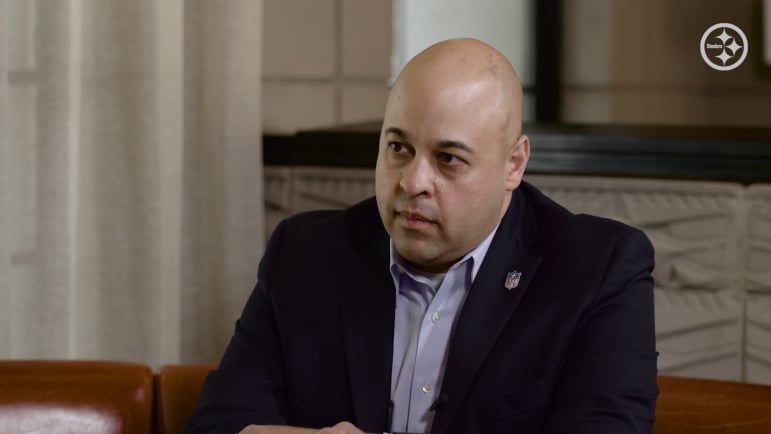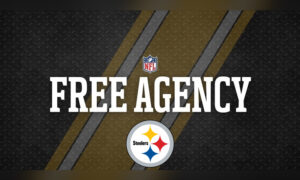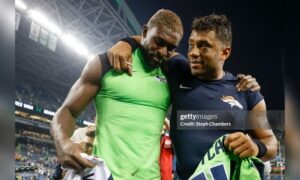Former Pittsburgh Steelers general manager Kevin Colbert was known for discussing the team’s first-round draft strategy in a way that seemingly removed the other 31 teams in the league from the equation. The day before the draft, for example, the Steelers would conduct their own self-mock in which they selected player after player that they would draft, in order, up to their own pick.
Doing so, Colbert found over the years, gave them the clearest picture of exactly what they wanted to do. If a number of players they had selected were still available when their pick was up, for example, it might tempt them to trade down.
New general manager Omar Khan was recently more open to the rest of the league in comparison to Colbert’s seeming solipsism. “We will be working hard to try to identify other teams’ needs and trying to figure out what they are doing”, he said during the annual league meetings this week, via Mark Kaboly of The Athletic. “It is our advantage to do that. We will be paying attention”.
You wouldn’t typically find Colbert saying something like that, whether it was actually true or not. It is worth noting that assistant general manager Andy Weidl, new to the team for this draft, was on a Philadelphia Eagles team under general manager Howie Roseman—and the Baltimore Ravens before —that was very active in this area.
While it varies team by team, there are those who try to learn as much as they can about what each organization might be planning to do. If they know that they might have to compete to land a particular draft prospect that they really covet, then they will move up, if they can, in order to get him.
Colbert’s drafts rarely saw the Steelers move from their spot very often. Far more than any other team in the league, they would almost invariably sit pat and then submit their selection to the league as soon as they were on the clock, rather than sit the time out to field possible trade offers.
Yet Colbert would always pay lip service to the notion of complete openness to trading up or down whenever it was advantageous for the team to do so. Khan saying similar things this year is no different, and we won’t know for at least a couple of drafts whether he will truly be any more aggressive in making moves than the Steelers were under Colbert.
The Steelers’ history of draft trades haven’t always been a rousing success story, anyway. Some worked out well—trading up for Troy Polamalu and Santonio Holmes, or back while still landing Casey Hampton. Others were less remarkable, Devin Bush being the most obvious example. They have also traded higher future picks for rather unremarkable players in later rounds, like Shamarko Thomas and Isaiahh Loudermilk.
We have a tendency to praise organizations that do a lot of wheeling-and-dealing at this time of year, resting upon the assumption that ‘doing things’ equates to actively working to get better. Teams don’t make trades, however, if they don’t feel like they’re getting an even exchange or better. For every Patrick Mahomes move, there are a dozen and a half clunkers.








